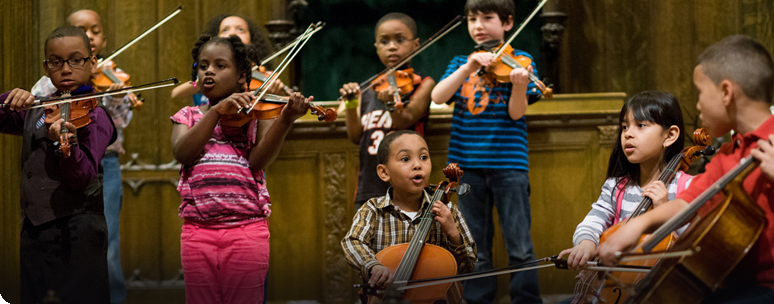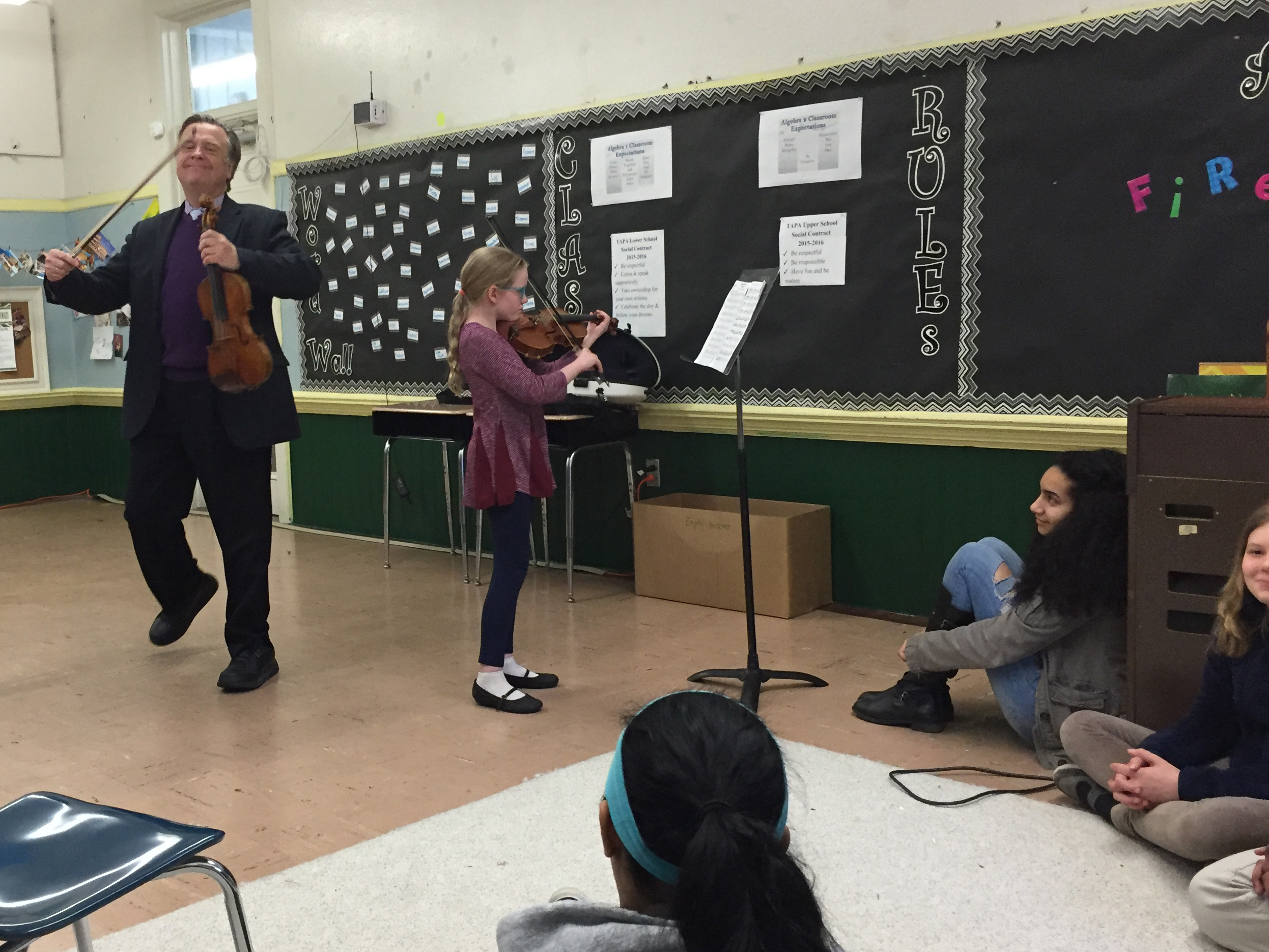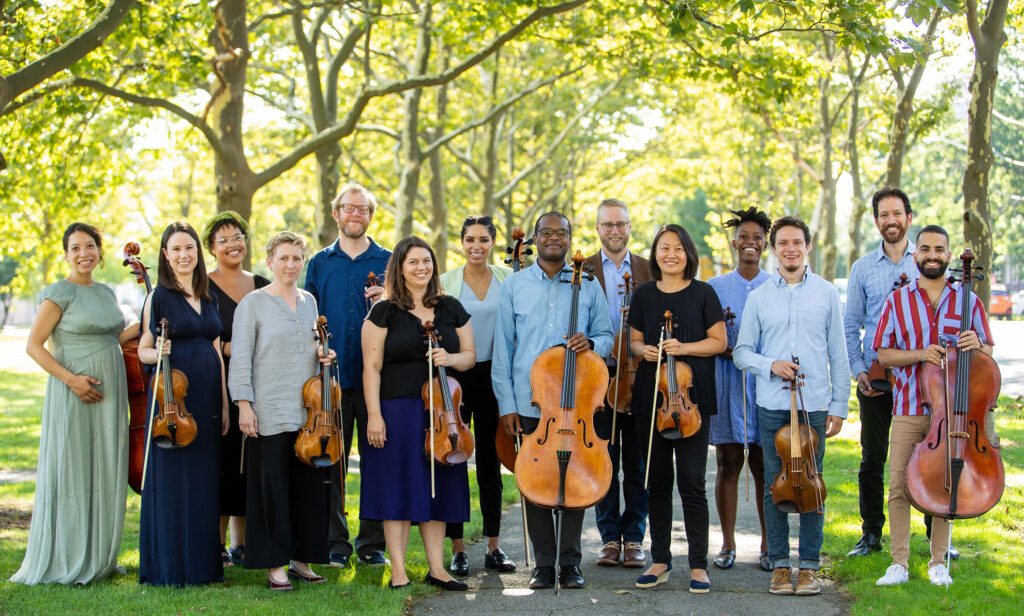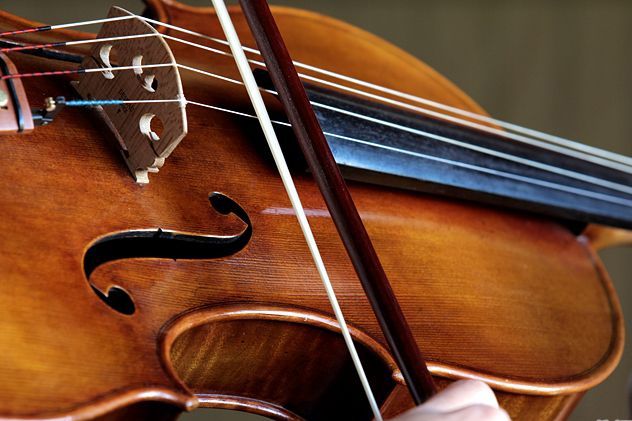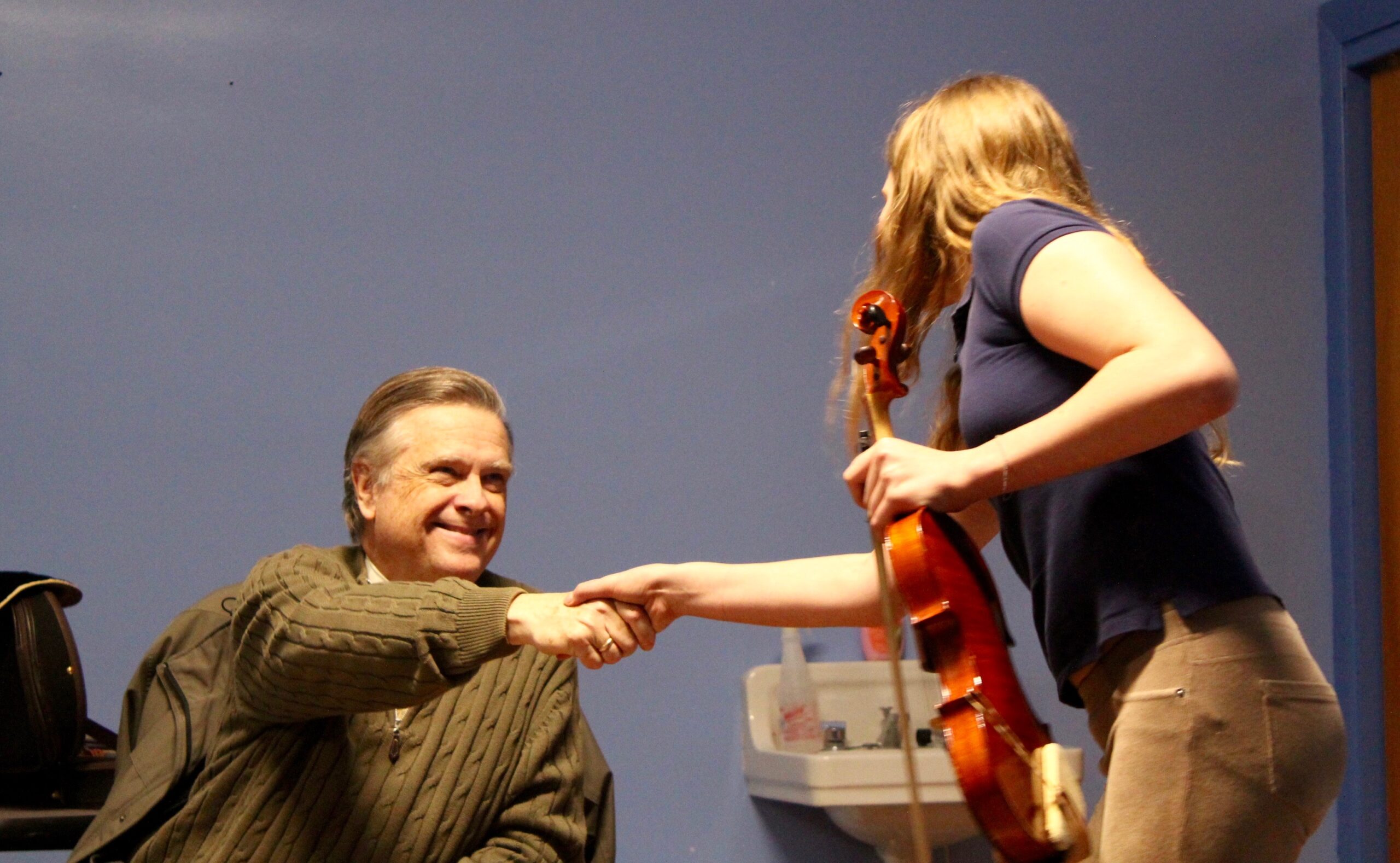
Violinist James Buswell greets student Roma Taitwood in a 2017 masterclass. CMW Resident Musician Jesse Holstein shares a remembrance.
On September 28th, my long-time teacher and mentor violinist James Buswell passed away at the age of 74. My first ever lesson with him was in the summer of 1993 at the Musicorda Music Festival at Mt. Holyoke College in Massachusetts, and my last was just this past spring on Zoom.
What always astounded me about Mr. Buswell was that he was such a complete artist and teacher. He was one of the great violinists of the 20th and 21st century, but what was rare about a violinist of his caliber is that he could diagnose any technical issue in one’s playing clearly and comprehensively and then vividly demonstrate possible solutions, no matter the student’s level. His musicianship was holistic and deep, and his musical choices and suggestions were always informed by an incredibly refined knowledge of style, language, color, literature, and historical context, among other considerations. Even his fingerings (what finger to use on a particular note) and bowings (what direction and articulation to use with the bow) were always crafted and curated to maximize the music’s meaning and impact.
Beyond this, he was always supportive and cared deeply for his students, and would always go the extra mile to offer advice or encouragement. Just last year, I was asked to give an online masterclass on a piece I had never performed or studied, the Poéme by Ernest Chausson. I reached out to him to see if he could share with me his edition of the piece. This alone would have been helpful and generous, but in addition to getting the pdf of his part, he called me that night and we proceeded to go over the piece together and he offered insights and suggestions for well over an hour.
We were lucky to have Mr. Buswell visit Community MusicWorks, once in April of 2016 and again in January of 2017 to offer masterclasses to our students, the latter visit accompanied by his wife, cellist Carol Ou, who offered a cello masterclass. What stuck with me from those events was the passion, the encouragement, and the simply ingenious teaching he and Carol offered our young musicians.
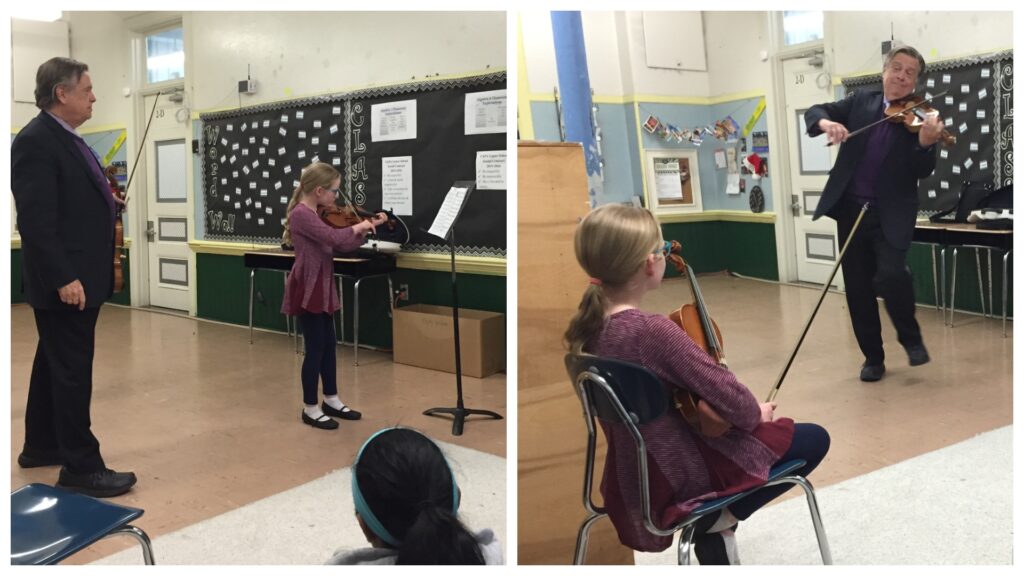
Mr. Buswell and his wife, cellist Carol Ou, treated each student as if they were colleagues, but just at a different point of their journey with music.
I can only hope that I can pass along as much knowledge as Mr. Buswell gave to me…onto his ‘grand students,’ my students at CMW.
![]()
–Jesse Holstein, violinist and CMW Senior Resident Musician
